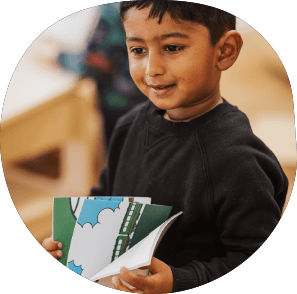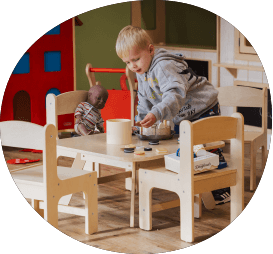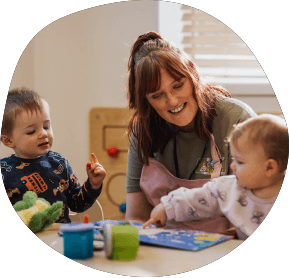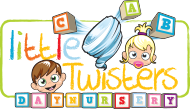Through Play
Curriculum
Through Play
Curriculum
Our Principles for Early Development
The Early Years Foundation Stage details the statutory responsibilities practitioners use to support children.
There are four principles that underpin the curriculum guidance which are:
- Every child is a unique child who is constantly learning and who can be resilient, capable, confident and self- assured.
- Children can learn to be strong and independent through Positive relationships.
- Children learn and develop well in enabling environments with teaching and support from adults, who respond to their individual interests and needs and help them to build learning over time.
- The combination of these principles recognise the importance of learning and development and that children develop and learn and different rates.
At Little Twisters we follow Birth to Five matters as a curriculum guidance, this endorses core principles which recognise the child at the centre of practice, their connections within families, communities, cultures and the natural world whilst considering their physical, social and emotional wellbeing, health and learning.
Play, both indoors and outdoors, makes a powerful contribution to children’s well-being and learning. Play is a fun, joyful opportunity for engaging in many different activities and being with others. We offer a range of play opportunities that are open-ended and flexible encouraging children to experiment with confidence.
The curriculum we have devised carries on throughout the nursery life and into reception class when children begin school.
Building Strong Foundations
The Key Areas of Early Learning
There are three main areas of learning that are fundamental to children’s development.
These areas are Personal, Social and Emotional Development, Communication and Language and Physical Development. This learning starts at the very beginning when children start the nursery – This is implemented throughout daily experiences and activities both inside the nursery play rooms and in our large outdoor space hosting various terrains and areas.
Adults support babies and children under three to develop within these three prime areas of learning and as they learn and grow and develop. As these foundations are embedded, four specific areas of learning are introduced and implemented into daily planned activities, spontaneous experiences within group learning and as part of a child’s individual learning plan. These areas are Literacy, Mathematics, Understanding the World and Expressive Art and Design.



Communication and Language
The development of communication underpins all areas of learning and development. Children’s back and forth interaction form the foundations for language and cognitive development as they show attention and listen, begin to understand and build vocabulary in their spoken language.
Personal, Social and Emotional Development
This is crucial for children to lead healthy and happy lives as they develop skills in making relationships as well as supporting a children’s sense of self which creates confidence for children to understand their emotions. This area is essential to each child’s cognitive development.
Physical Development
Physical activity is vital in children’s all round development. Sensory explorations and the development of children’s strength, coordination and positional awareness are explored in a variety of ways throughout play and movement developing children’s Gross and fine motor skills enabling them to pursue happy, healthy and active lives.
Literacy
Language comprehension which is necessary for reading and writing starts at birth. This develops when children are exposed to songs, rhymes, poems and talk about the world around them as well as the books and stories that are shared. Interaction is therefore crucial in the development of literacy and we are extremely passionate about sharing and developing the love of reading.
Mathematics
A strong grounding in number, shape, pattern, measure and spatial awareness is essential so that children develop the necessary building blocks to excel mathematically. Providing frequent and varied opportunities to build and make links through daily routines using language such as next and then as well as encouraging counting and representing numbers in play ensures that the children in our care will develop a secure base of knowledge from which the mastery of mathematics is built.
Understanding the World
Understanding the world involves guiding children to make sense of their physical world and community. The range of, and frequency of children’s personal experiences increases their knowledge of the sense of the world around them. This takes place by celebrating and valuing cultural and religious events, visiting local areas within the community and exploring how things work as children explore the effect of their actions in play.
Expressive arts and design
The development of children’s artistic and cultural awareness supports their imagination and creativity. Children are supported to regularly engage with arts exploring a range of media and materials. The quality of what children see and hear is crucial for developing their understanding, self-expression and ability to communicate through being imaginative in a variety of ways which encompasses all of the areas situated across the setting.
Get in touch
Little Twisters, Unit 28,
Bellingham Drive,
North Tyne Industrial Estate,
Newcastle upon Tyne, NE12 9SZ.
